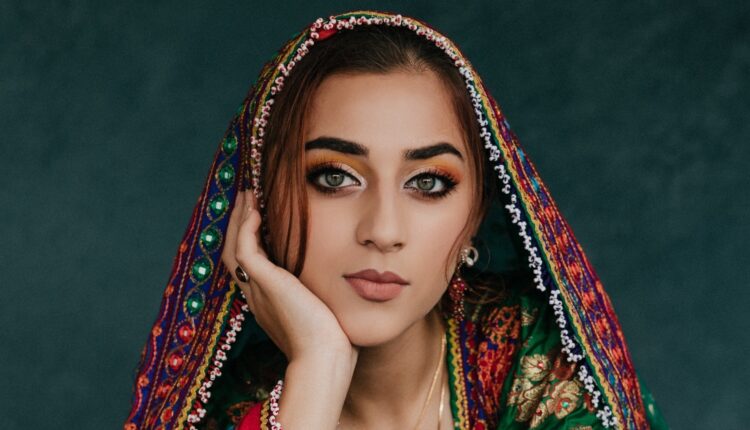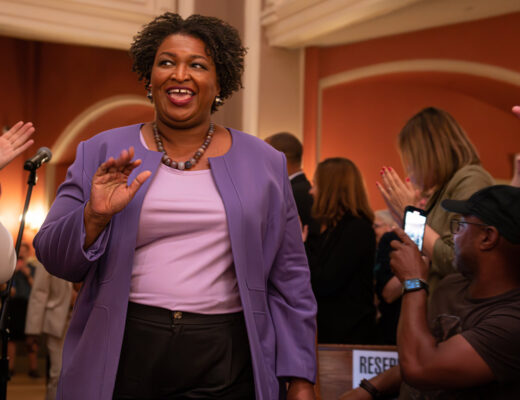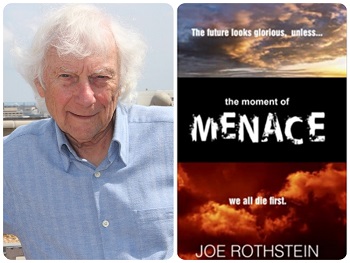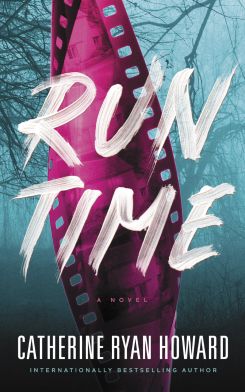By Kelly McDonnell
This article was first published February 16, 2021 in The DC Line here.
Marjan Naderi, DC’s youth poet laureate in 2020, had long worried that poetry was dying. After years of expressing herself through poems, winning slam poetry contests, and even publishing her own book, Naderi wondered whether her craft was worth the effort anymore.
“We spent the past four years seeing our speech as something disposable, when it’s anything but that,” Naderi said in an interview with The DC Line. “Is this nation even ready for poems? Especially the last few years, I was like, ‘What am I doing?’”
And then she listened as Amanda Gorman recited her poem “The Hill We Climb” at President Joe Biden’s inauguration. The youngest inaugural poet in U.S. history, Gorman was chosen as the first-ever National Youth Poet Laureate in 2017.
“Amanda just really … hit a new wave on the head,” Naderi said. “Welcome poetry! We’re having poetry at the Super Bowl! It really affirmed that the work that I’m doing is worthy.”
Naderi and Gorman are poets who achieved youth laureate recognition through programs created by Urban Word in New York City.
As the District’s youth poet laureate last year, Naderi was scheduled to conduct a performance tour around the city, including speaking engagements at public libraries and multiple Busboys and Poets bookstore cafes. She served on the Kennedy Center’s Youth Advisory Board.
Chosen annually by the local arts organization Words, Beats & Life Inc., the honoree is a poet, 13 to 19 years of age, who has expressed creativity in language, has served the community through social justice activism and has demonstrated leadership. Amiri Nash, a freshman at Brown University, has been newly named DC’s 2021 youth poet laureate.
Naderi — a six-time Poetry Grand Slam champion and author of the poetry collection Bloodline — was one of six national artists depicted in outdoor video portraits as part of Strathmore Center’s exhibit Monuments: Creative Forces, designed by artist Craig Walsh. Naderi, a 19-year-old University of Virginia student, was excited to be DC’s laureate because it was the culmination of such hard work. Naderi was born in Northern Virginia, so she grew up close to the city. As she started writing in eighth grade, the city and those who live within it became her muse.
Patrick Washington, Words, Beats & Life Inc.’s director of poetry, became acquainted with Naderi while working with her at workshops and seminars for four or five years before she became the organization’s laureate.
“She was lively, she never backed down from a disagreement. She stood her own with adults. I knew she was something special early on,” Washington said. When Words, Beats & Life Inc. looks for a poet laureate, it’s not just looking for a good poet, “but an outstanding human,” he added.
“She was uniquely formed by her experiences as a child of refugees,” Washington said. “That informs the type of person she is, and we like that — we like people who absorb and watch and then respond.”
Naderi was able to participate in some Youth Poet Laureate events early in 2020, before the COVID-19 pandemic creeped in, but then venues closed and performances were canceled.
“A majority of my poems are blossomed from being out, seeing human beings carry themselves with nuance and joy and stories,” Naderi said. “I love writing portrait poems, going into various spaces and seeing life happen in its rawest form.”
Without the opportunities to observe people and find inspiration, Naderi said her mental health and creative writing both suffered. She also struggled to create poetry spaces online, but Naderi knew she had to keep expressing her feelings.
“I still kept [up with] my writing because I know that is the only thing that gets me through so much of being alive, so much of every day, where every moment can be a boost of joy or absolute agony or suffering,” Naderi said.
The pandemic limited her access to in-person community service, which she had frequently done in the past. Naderi has focused on education, particularly of Afghan children both in the DMV and in Afghanistan.
When the Black Lives Matter protests began, Naderi felt compelled to help. She organized a social media fundraiser that raised thousands of dollars. She used that money to buy food and health supplies for activists who protested for weeks in the city.
During that time, she said, she saw how contradictory DC is. In some gentrified neighborhoods, houses would be blocked off, with roads closed and people reluctant to join the protesting crowds, Naderi said. She added how disappointed she was to see her community splintered.
But Naderi said she also saw great rejoicing and organizing in the Black Lives Matter protests and during Juneteenth events.
“I saw what community meant at its rawest core, to be a tribe and to ever expand that tribe for love, to be human, becoming human at its forefront,” Naderi said. “I saw DC evolve over a span of a few weeks.”
Sensing such a powerful community both at Black Lives Matter protests and during Gorman’s inauguration performance felt like a new wave of hope, Naderi said.
“It was great to see that she was still flying the flag for spoken word, for poetry and expression,” Washington said of her work during the Black Lives Matter protests.
During the 2016 presidential campaign and Donald Trump’s time in the White House, Naderi said, she and her mother — along with many others in her Afghan community — experienced hate crimes. Naderi recalled a day in 2016 when her headscarf was yanked off her head “by a bigot.”
“As a Muslim, as an advocate, as a writer, as a woman, you lose sense of yourself and how this country holds you. Do they even respect you?” Naderi said.
Gorman’s performance and the ensuing excitement and conversation left Naderi feeling proud again to be involved in the poetry community. She said she was encouraged that Biden chose a poet to usher in a new era of “healing.”
“The poems we write will change nations, so long as we are given the platform,” Naderi said. “These youth poets are the future. We are writing history. We are writing and creating and moving a part of the force. We are the force itself. We come and we bless.”





No Comments